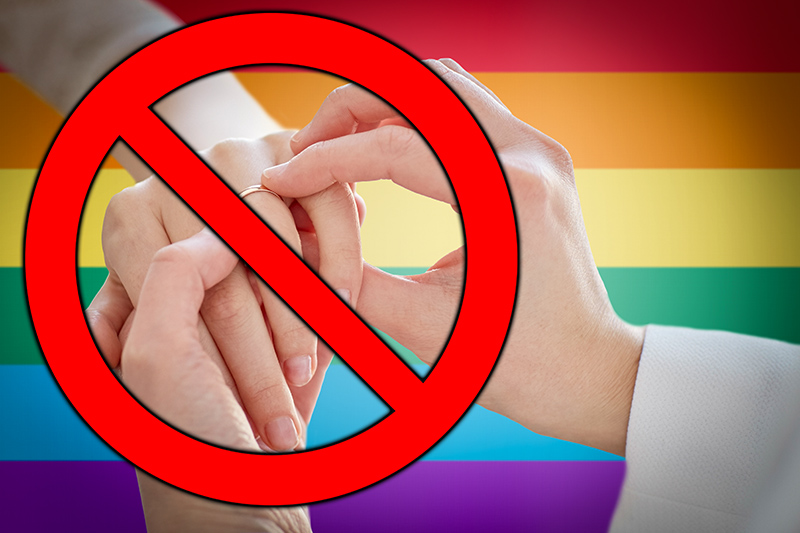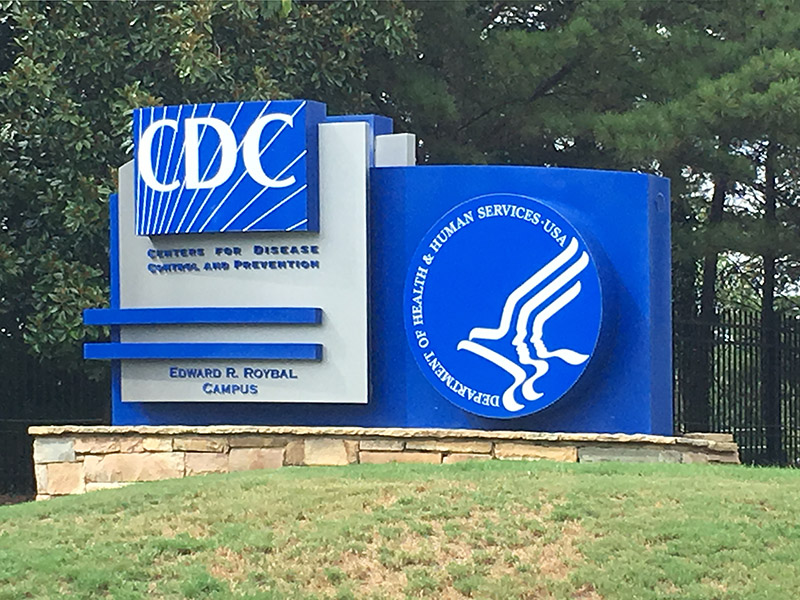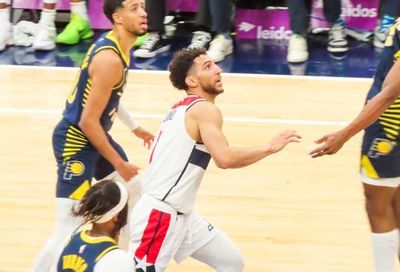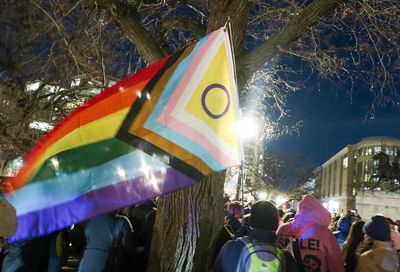Maryland's Marriage Success
Question 6 strategies may not work everywhere, but the win gives a green light to its political supporters regardless
The dust is beginning to settle after Maryland voters approved Question 6, a referendum on the Civil Marriage Protection Act, which grants same-sex couples access to Maryland marriage licenses.
That victory in Maryland, a state with a sizeable African-American population and a state that borders the South, may have some activists wondering whether tactics used in Maryland can be adopted in other states seeking to pass marriage-equality laws.
The law, signed in March and having withstood the referendum effort, takes effect Jan. 1, 2013. Same-sex couples wanting marriage licenses must contact the Circuit Court Clerk’s Office in the county where they plan to wed. Fees for the license vary from county to county. Under the law, no church or religious organization is forced to recognize a marriage that violates its beliefs or convictions.

Map of Maryland Counties that voted FOR and AGAINST Question 6 to approve Marriage Equality
According to official returns from the Maryland Board of Elections website, Maryland voters approved the Civil Marriage Protection Act by a vote of 52 percent in favor to 48 percent against. The measure passed in six jurisdictions: Baltimore City; and Baltimore, Anne Arundel, Howard, Frederick and Montgomery counties. It also came close to passing in Kent County, on the Eastern Shore, and in Prince George’s County, a majority-African-American jurisdiction, surpassing many political observers’ expectations.
But those who worked on the campaign to pass the Civil Marriage Protection Act, first as a law through the General Assembly and then at the ballot box through the ”Vote for 6” campaign, said they were positive the measure would pass.
”All along, the internal and most of the public polling was hovering at or above 52 percent,” says Kevin Nix, a spokesman for the Human Rights Campaign (HRC). ”In the final two weeks, you could see that the people on the ground, not with the campaign, seemed to feel better about it.”
As the nation’s largest LGBT civil rights organization, HRC donated money and staff to help organize and assist local groups, including representatives of pro-LGBT religious organizations, labor and community organizations, in fighting for the legislative passage of the Civil Marriage Protection Act and the passage of Question 6.
Nix says that one of the lessons from Maryland’s fight is that polls showing majority support for marriage equality were essentially correct. In other states, polling has often been unreliable, showing more LGBT support than actually exists on Election Day.
”I think it debunks that myth that the polls are wrong,” Nix says. He adds that exit polls show a quarter of self-identified Republicans supported Question 6 – a substantial number – particularly in more politically conservative counties such as Frederick and Anne Arundel. The ”Vote for 6” campaign was successful in fostering support among African-American voters across the state, Nix continues, pointing to wins in Baltimore City and Prince George’s County; and substantial support among African-Americans in Charles and Calvert counties, where support for Question 6 garnered 45 percent of the vote.
”If you really studied the state and how people viewed the issue, and what we needed to do, the path was pretty clear,” says Nix.
”Even Rev. McCoy said he thought the message of the pro-Question 6 side, focusing on equality and fairness, resonated with African-Americans,” Nix says, referring to a Washington Post interview which Derek McCoy, the leader of the anti-Question 6 Maryland Marriage Alliance, said he thought ”the targeted ads toward the African-American community helped to get just enough black support to win.”
According to Fox News exit polls, whites, 60 percent of the Maryland electorate, supported Question 6 by a 54-46 margin; while black voters, making up 28 percent of the electorate, opposed it by a 54-46 margin. But the same exit poll shows a split along gender lines within the black community, with black women narrowly approving Question 6 by a 51-49 margin and black men voting against it by a 60-40 margin.
The ballot language for Question 6 was clear with regard to what the law would do and the religious protections it provided, Nix says of the variables that led to the win. When asked whether other states should adopt Maryland’s marriage-equality tactics, Nix points out that facts on the ground in each state may dictate whether a particular argument in favor of marriage equality is salient.
Support Metro Weekly’s Journalism
These are challenging times for news organizations. And yet it’s crucial we stay active and provide vital resources and information to both our local readers and the world. So won’t you please take a moment and consider supporting Metro Weekly with a membership? For as little as $5 a month, you can help ensure Metro Weekly magazine and MetroWeekly.com remain free, viable resources as we provide the best, most diverse, culturally-resonant LGBTQ coverage in both the D.C. region and around the world. Memberships come with exclusive perks and discounts, your own personal digital delivery of each week’s magazine (and an archive), access to our Member's Lounge when it launches this fall, and exclusive members-only items like Metro Weekly Membership Mugs and Tote Bags! Check out all our membership levels here and please join us today!























